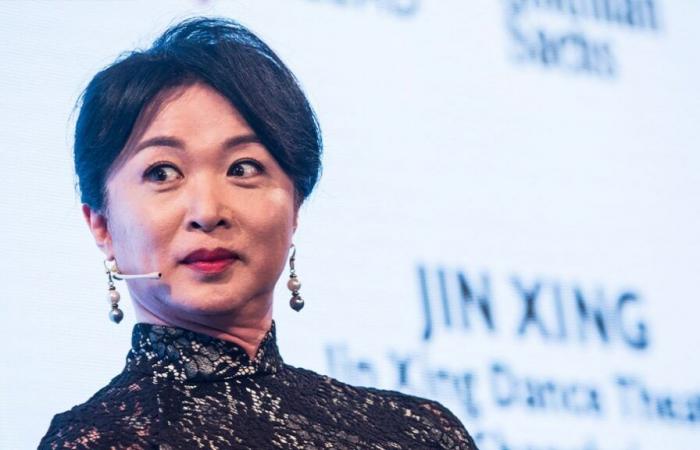Are the rights of transgender people under threat in China? The case of the dancer Jin Xing is worrying. Since the end of 2023, many of its shows have been cancelled.
The journey of Jin Xing, transgender dancer and icon in China, is remarkable in a country where the rights of LGBTQ+ people are increasingly restricted. Despite her exceptional career and her status as a media personality, Jin is today faced with a series of unexplained cancellations of her shows, reflecting the harshness of the Chinese authorities towards this community, as reported by the American media CNN.
A figure of hope and admiration
At 57, Jin Xing is a source of inspiration for transgender people in China. With 13.6 million Weibo subscribers, hit TV shows and packed theaters, she has managed to gain rare official support in a country where discrimination remains pervasive. State media described her as one of “10 legendary figures of Chinese modern dance“.
“I find his journey admirable,” confides Cyan to CNN, a 23-year-old trans man, now in Canada, adding that it is difficult to live openly as a trans person in China. However, Jin seemed to embody the hope of a more tolerant future.
A worrying turning point
Since the end of 2023, several Jin Xing shows have been canceled, notably in Guangzhou, Suzhou and Shanghai. Local authorities speak of “insufficient documents“, but Jin denounced these decisions in a Weibo post, since deleted, asking: “Please do not abuse your public power!“
These cancellations come in a context where China is strengthening its ideological control, often equating LGBTQ+ values with foreign influences. Pride parades have been banned, support groups disbanded, and the media censors LGBTQ+ themes.
An extraordinary ascent
Born into a military family, Jin Xing received training in classical dance and military discipline from a young age. After an international career in New York, Rome and Brussels, she returned to China where she founded her own dance theater in 1999, after gender affirmation surgery at age 26. Thanks to her humor and outspokenness, she became a renowned presenter nicknamed “the Oprah of China“.
“I am myself and only represent myself. I will always remain Jin Xing, it has nothing to do with gender,” she wrote on Weibo recently.
The reality for transgender people in China
Despite Jin’s success, many transgender people in China live in precariousness and invisibility. Cyan explains that gender affirmation surgeries are expensive and subject to restrictive conditions, such as parental consent. “In China, you feel like a street rat, forced to hide your identity,” he said.
For others, like 26-year-old Barbie Yao, life is about juggling a hidden identity by day and limited self-expression by night. “What Jin is going through only makes our pessimism worse.,” she adds to CNN.
As China becomes increasingly conservative under the leadership of Xi Jinping, Jin Xing may well represent one of the last figures of visibility for the LGBTQ+ community in the country.
Rights of LGBTQIA+ transgender people China








